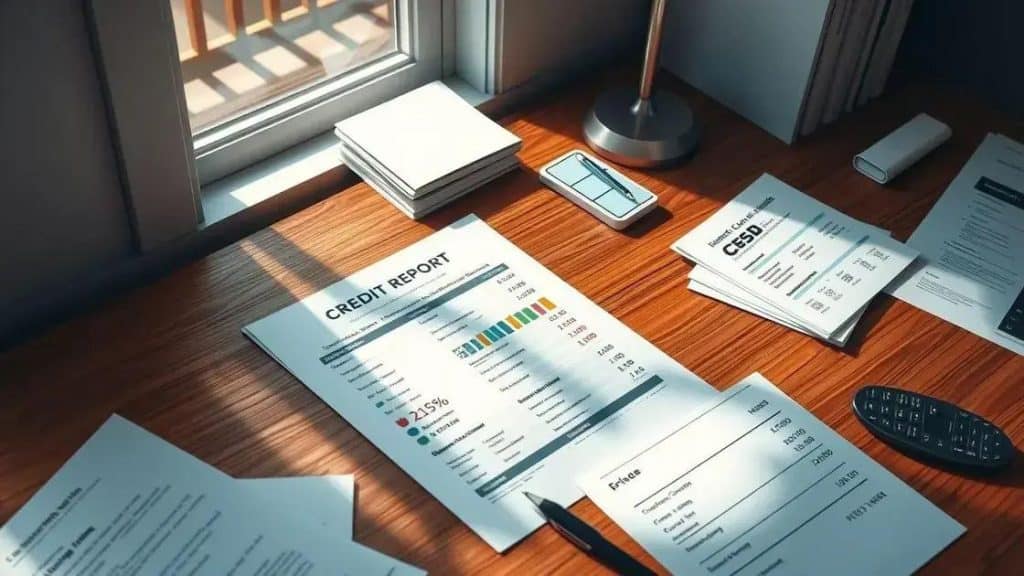How to improve credit rating: simple steps to take

Anúncios
To improve your credit rating, regularly check your credit report, make timely payments, keep your credit card balances low, and avoid applying for too much new credit at once.
How to improve credit rating can often feel overwhelming, but it’s not as daunting as it seems. With the right approach and knowledge, you can enhance your score. Curious about the best strategies? Let’s dive in!
Anúncios
Understanding credit ratings and their importance
Understanding your credit rating is crucial for managing your financial health. A credit rating reflects how likely you are to repay borrowed money. It affects your ability to secure loans, credit cards, and even rental agreements. Many may wonder why credit ratings matter, and the answer lies in their impact on your financial opportunities.
Your credit rating is influenced by several key factors, which can be critical to your financial journey.
Anúncios
Key Factors that Influence Your Credit Rating
Payment history, the most significant factor, shows lenders how reliably you pay back debts. Another major aspect is your credit utilization, which compares your total credit balances to your total credit limits.
- Payment history
- Credit utilization
- Length of credit history
- Credit mix
Furthermore, the length of your credit history plays a role too. A longer history usually indicates more experience managing credit. Your credit mix, which includes various types of credit accounts, is also considered. Lenders like to see that you can handle different types of credit responsibly.
Having a good credit rating can lead to better loan terms and lower interest rates. Think about it: when you apply for a mortgage or car loan, your credit rating is often the first thing lenders check. It helps them decide whether to approve your application, and what terms to offer. Thus, understanding and improving your credit score can save you money in the long run.
In summary, your credit rating is a vital part of your financial identity. By understanding how it works and its importance, you can take proactive steps to enhance it. A robust credit rating opens doors to many financial opportunities, making it an essential aspect of your financial planning.
Factors affecting your credit rating

Several factors can significantly affect your credit rating. Understanding these elements is crucial to improving and maintaining a good score. Your credit rating can influence everything from loan approvals to interest rates. Thus, being aware of these factors empowers you to take control of your financial future.
Key Influencers of Your Credit Rating
Firstly, your payment history is the most critical factor. Lenders want to see a record of timely payments. Missing or late payments can drastically lower your score. Next, consider your credit utilization ratio. This metric compares your total credit balances to your total available credit. It’s ideal to keep this ratio below 30% to maintain a healthy credit score.
- Payment history
- Credit utilization ratio
- Length of credit history
- Types of credit
Additionally, the length of your credit history contributes to your rating. A longer credit history typically reflects positively, as it shows your experience with managing credit. Lastly, having a variety of credit types—such as credit cards, loans, and a mortgage—can enhance your score, proving to lenders that you can handle different credit accounts responsibly.
It is also important to remember that hard inquiries can temporarily affect your score when you apply for new credit. Each time you request a new credit line, the lender reviews your credit report, which may result in a slight drop in your score. However, if you maintain good credit habits, these impacts are often short-lived.
By focusing on these factors, you can adopt strategies to improve your overall credit rating. Monitoring your credit report regularly and understanding what influences your score will help you make informed financial decisions.
Steps to improve your credit rating
Improving your credit rating is a process that requires commitment and smart financial habits. By following specific steps, you can boost your score over time and gain better financial options. Understanding these steps is essential to achieving your financial goals.
How to Improve Your Credit Rating
The first step to take is to check your credit report. Regularly reviewing your report helps identify errors or negative items that could hurt your score. Dispute any inaccuracies you find to ensure your report accurately reflects your financial history.
- Check your credit report regularly
- Pay your bills on time
- Reduce high credit card balances
- Limit new credit applications
Next, focus on paying your bills on time. Late payments can significantly damage your credit score. Setting up automatic payments or reminders can help ensure you never miss a due date. Additionally, strive to lower your credit card balances. Keeping your credit utilization ratio below 30% shows that you are managing credit responsibly.
It’s also wise to limit new credit applications. Each new credit inquiry can lead to a temporary dip in your score. Instead, focus on repairing and building existing credit lines. Maintaining older accounts can help, as longer accounts reflect favorably on your credit history.
Moreover, consider becoming an authorized user on someone else’s credit card. This can boost your score, provided they maintain a good payment history. Remember, improving your credit rating takes time, small changes can lead to significant improvements.
Common mistakes to avoid regarding credit

When it comes to managing your credit, avoiding common mistakes is crucial for maintaining a good rating. Many people make errors that can negatively impact their credit scores without realizing it. Identifying these issues can help you steer clear of pitfalls and improve your financial standing.
Common Credit Mistakes to Avoid
One frequent mistake is missing payments. Late payments can greatly hurt your credit score. It’s important to keep track of your due dates and set reminders or automate payments whenever possible. Additionally, people often apply for too much credit at once, which leads to multiple inquiries on their credit reports. Each hard inquiry can lower your score slightly, so it’s wise to limit new applications.
- Missing payments
- Applying for too much credit
- Ignoring your credit report
- Maxing out credit cards
Another mistake is ignoring your credit report. Regularly reviewing it helps you spot any inaccuracies or signs of fraud. Not being aware of your credit status means you risk overlooking issues that could be damaging your score. Also, maxing out your credit cards can significantly harm your credit utilization ratio, which in turn affects your score. It’s recommended to keep your balances below 30% of your credit limit.
Lastly, some individuals make the mistake of closing old credit accounts. This can shorten your credit history and reduce your score. Even if you don’t use an old account often, keeping it open can help maintain a longer average credit history, which is beneficial for your score. Understanding these common mistakes helps empower you to make better credit decisions.
FAQ – Frequently Asked Questions About Improving Credit Ratings
What are the main factors that affect my credit rating?
The main factors include payment history, credit utilization ratio, length of credit history, and types of credit accounts.
How can I quickly improve my credit score?
You can quickly improve your score by paying your bills on time, reducing credit card balances, and checking your credit report for errors.
Is it bad to apply for multiple credit cards at once?
Yes, applying for multiple credit cards at once can lead to multiple hard inquiries, which may temporarily lower your credit score.
How often should I check my credit report?
You should check your credit report at least once a year to monitor for errors and understand your credit standing.





